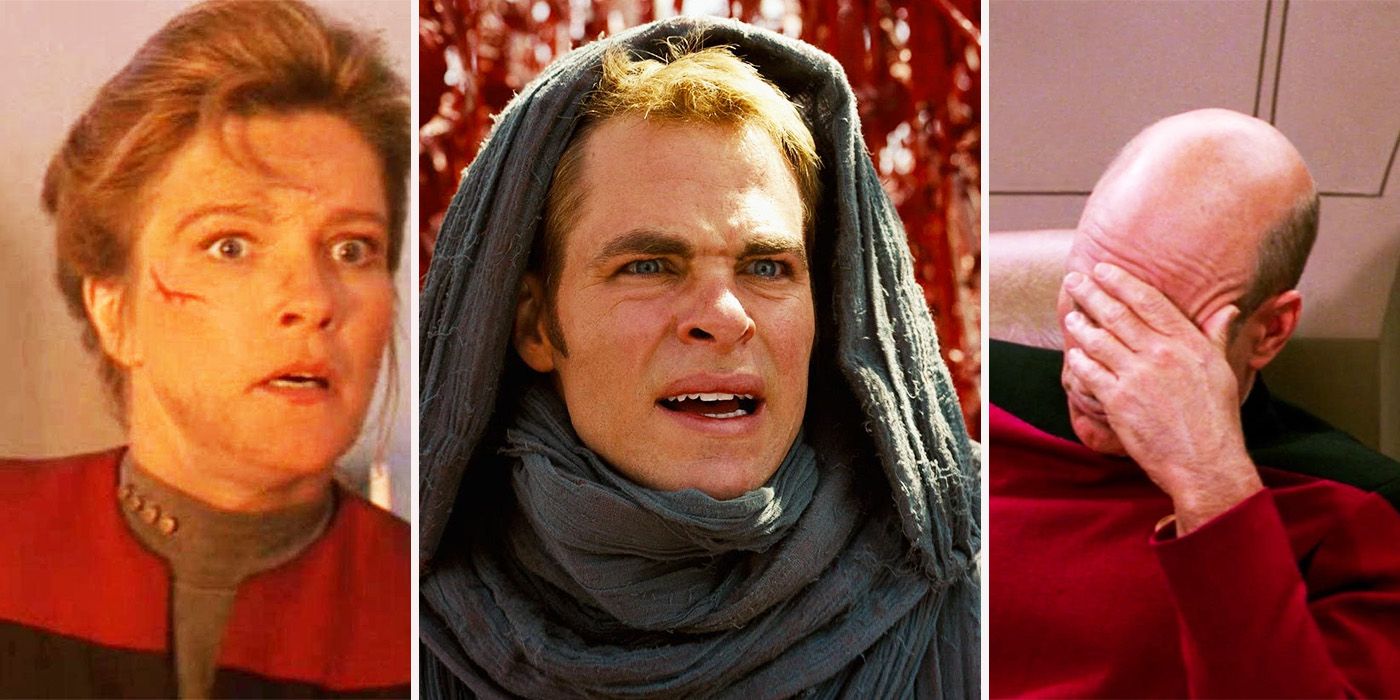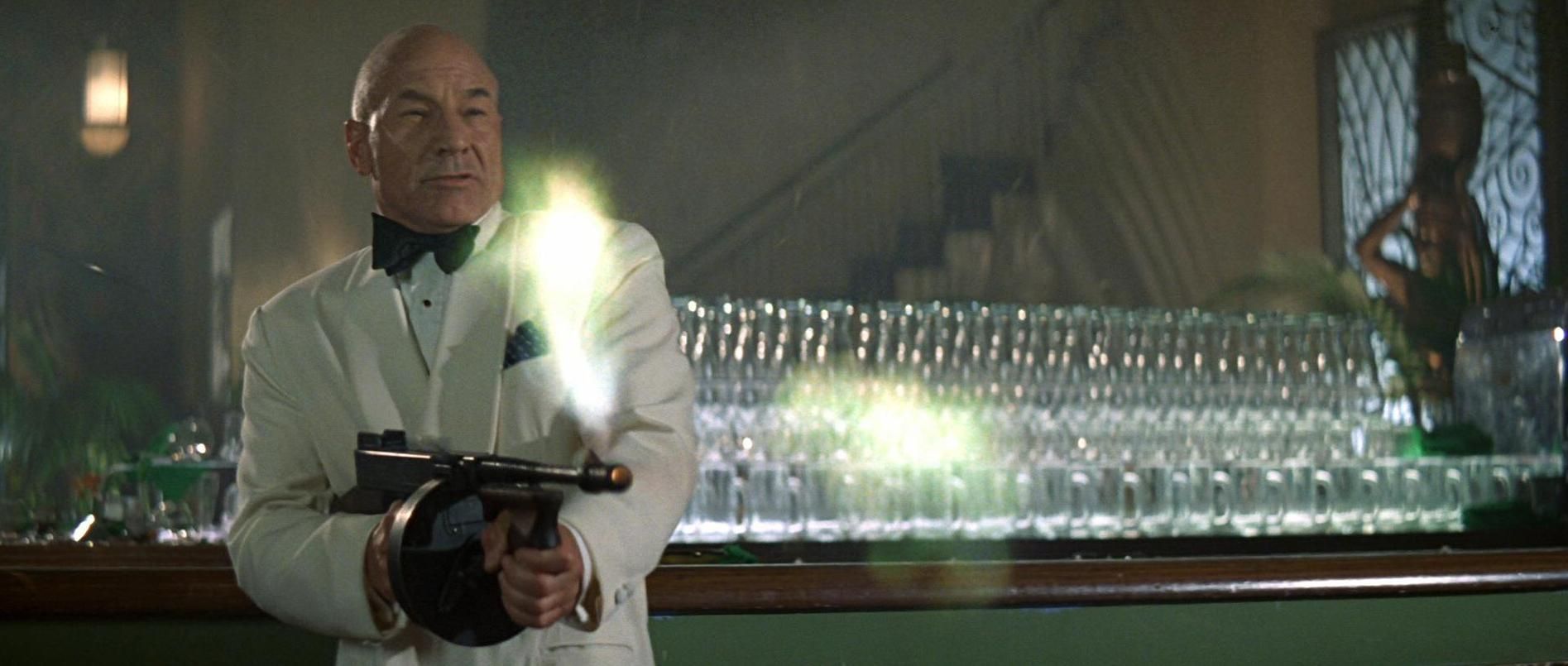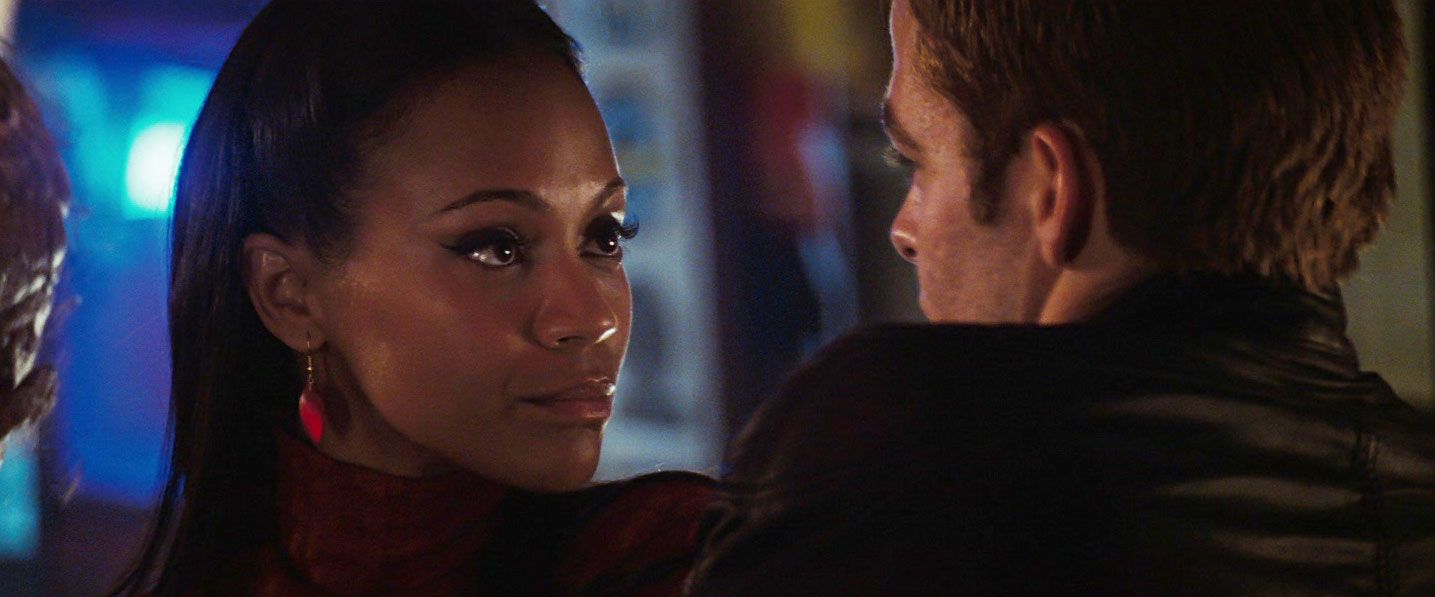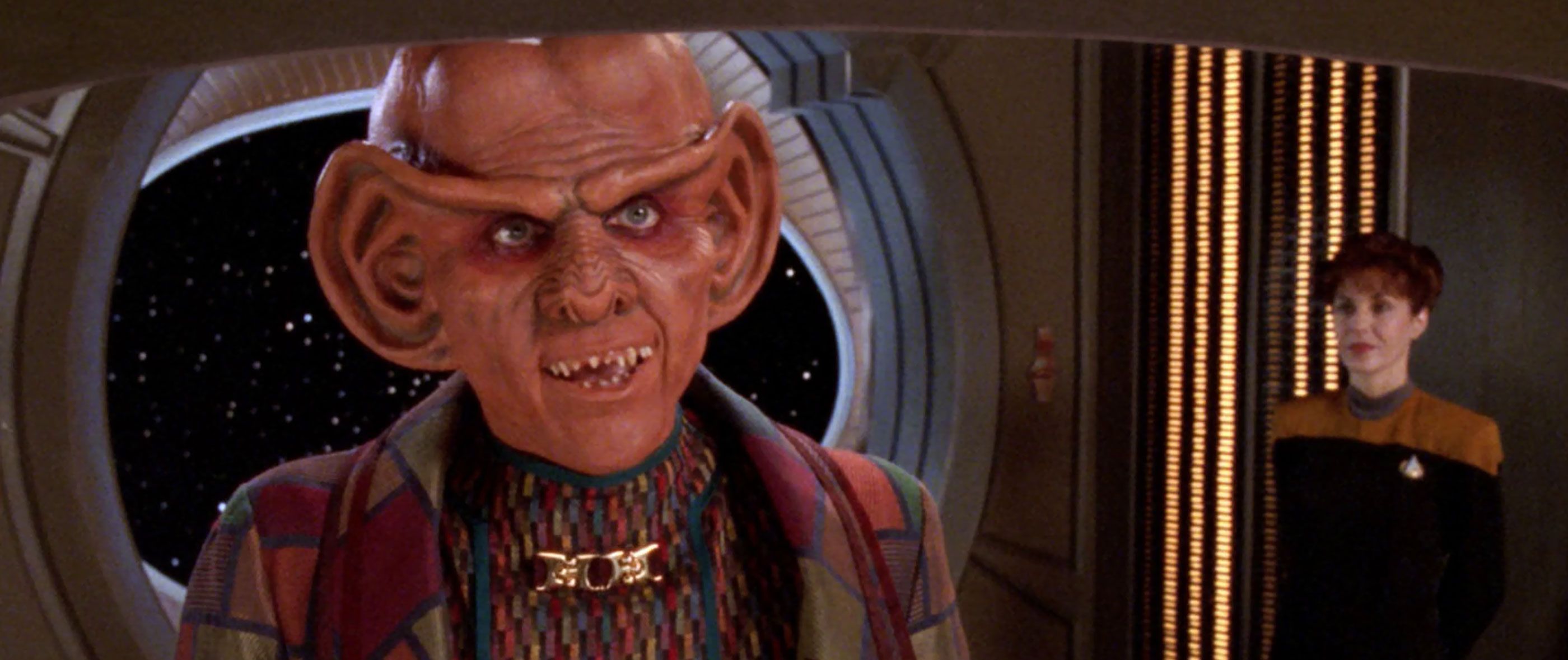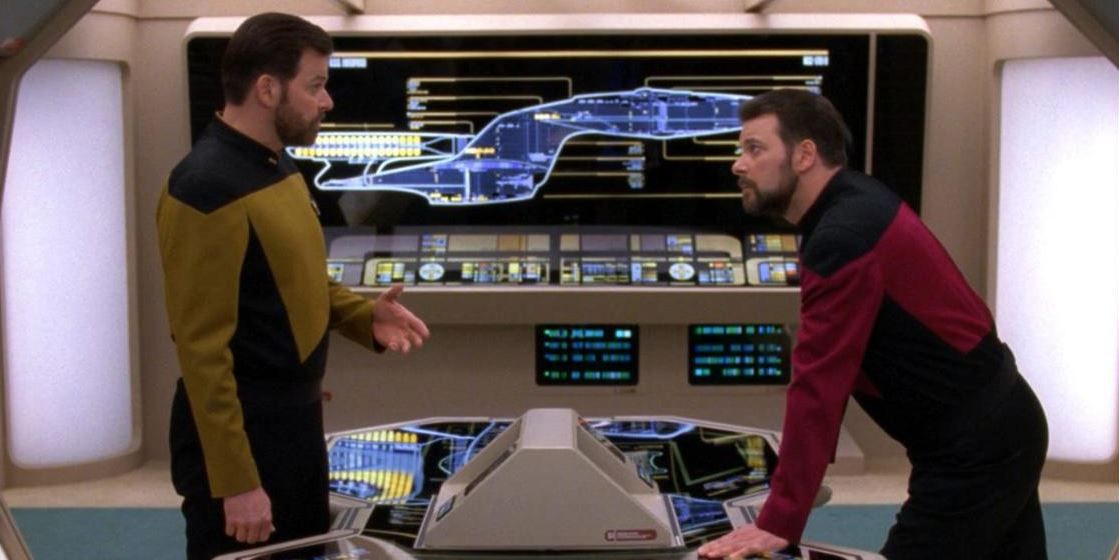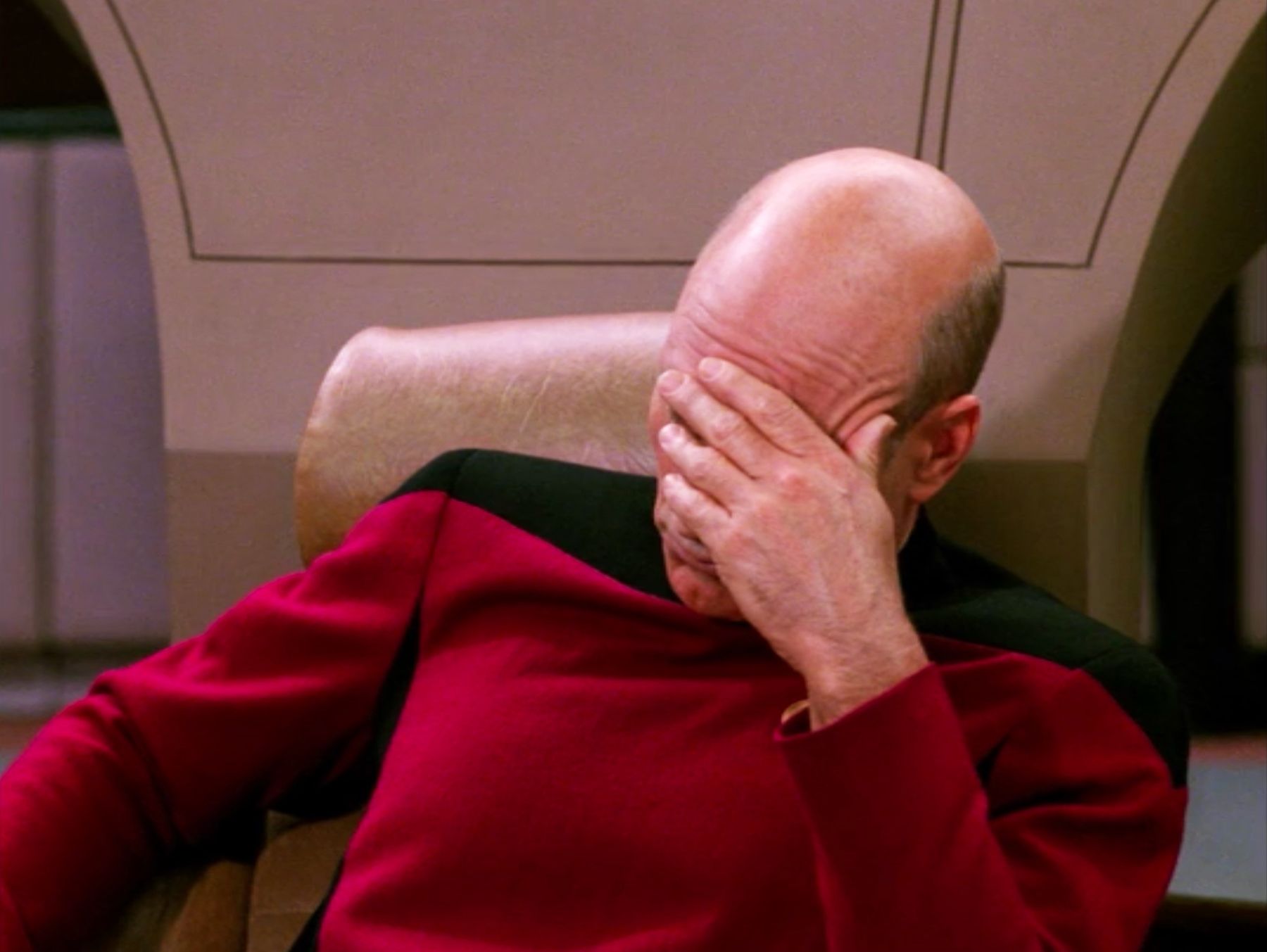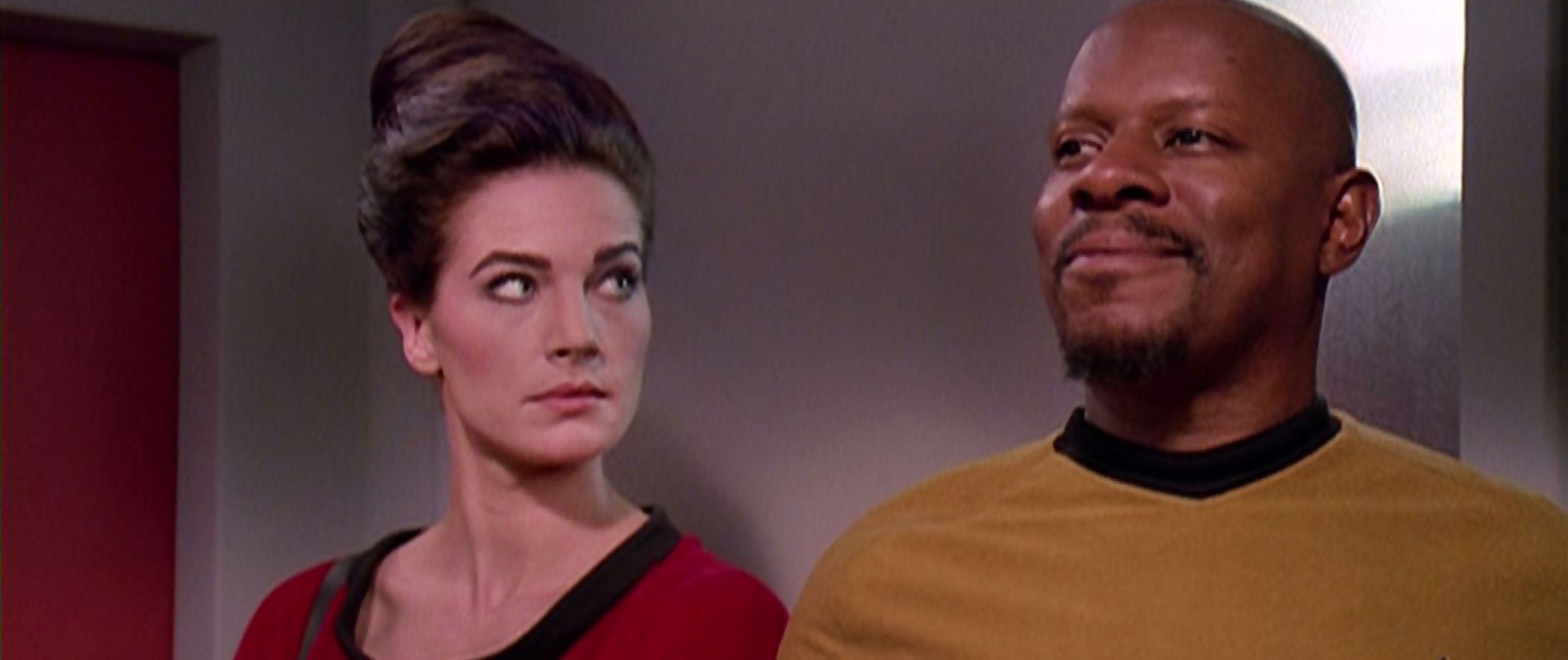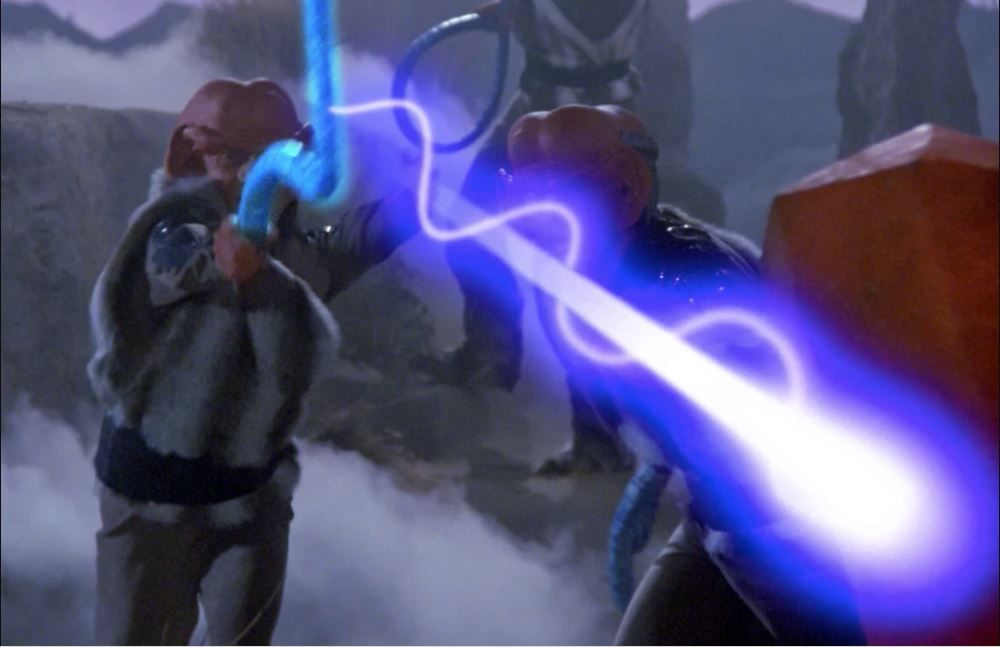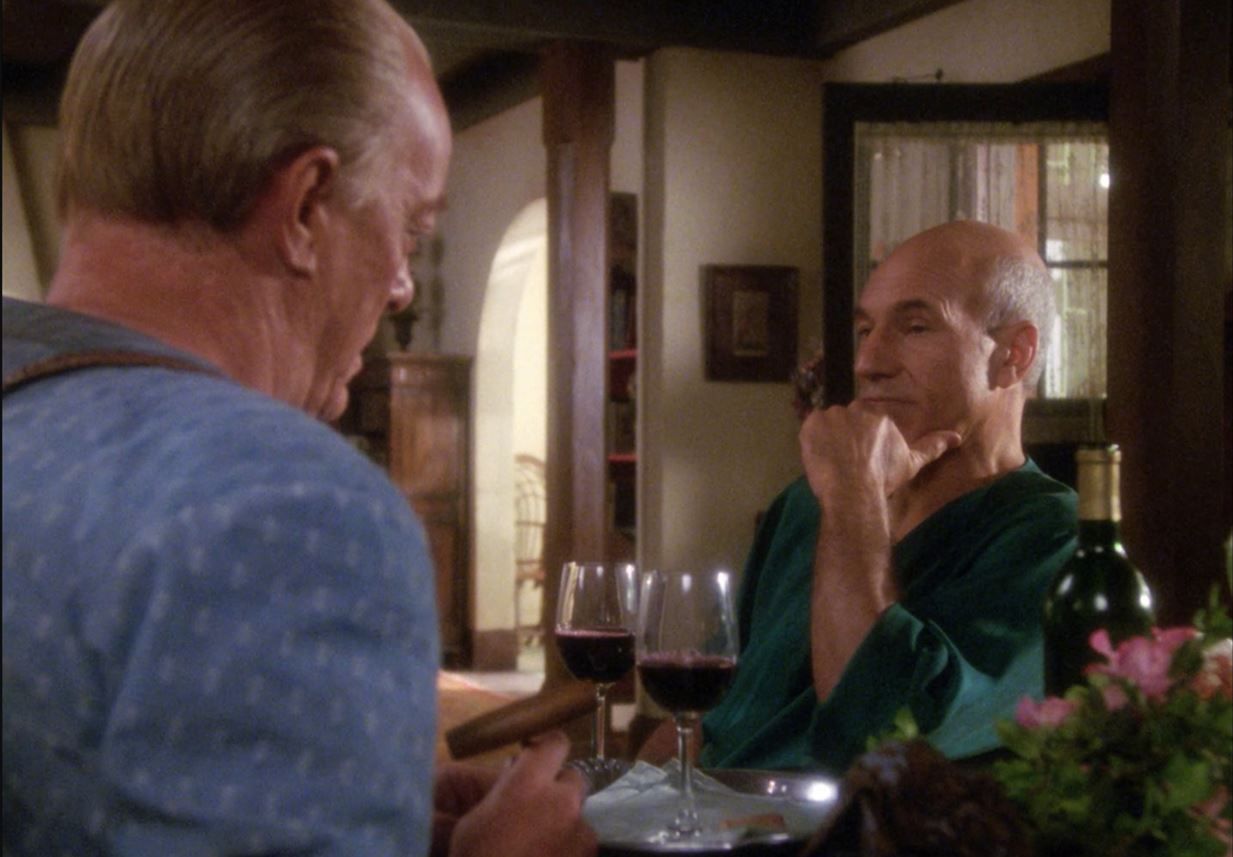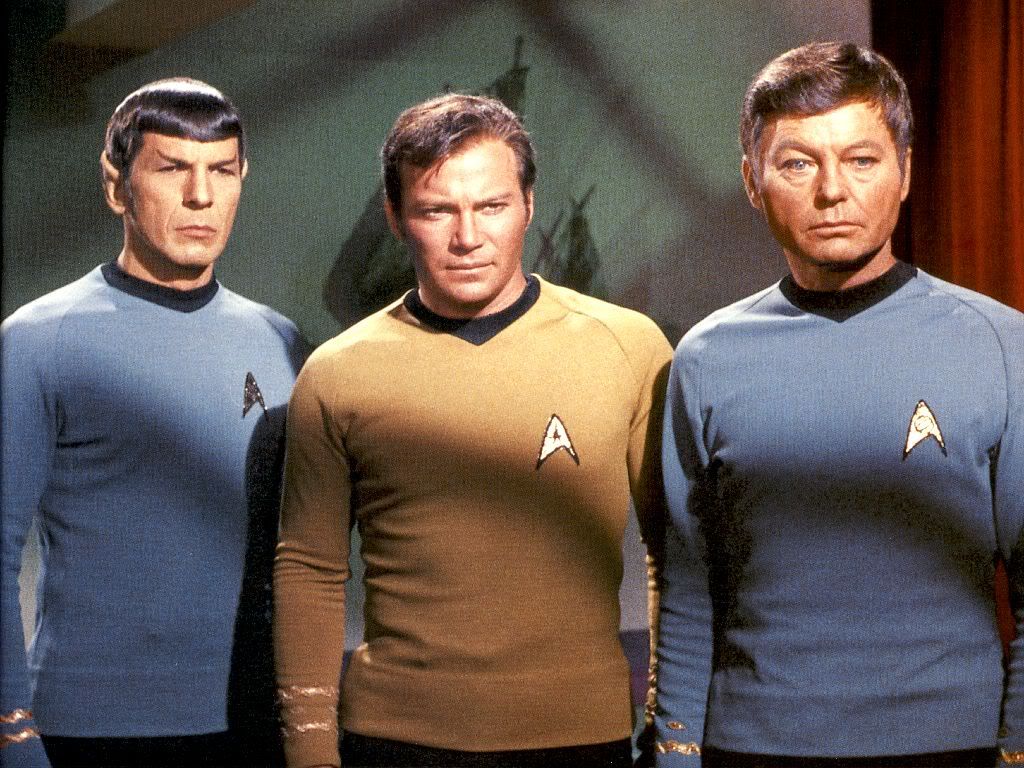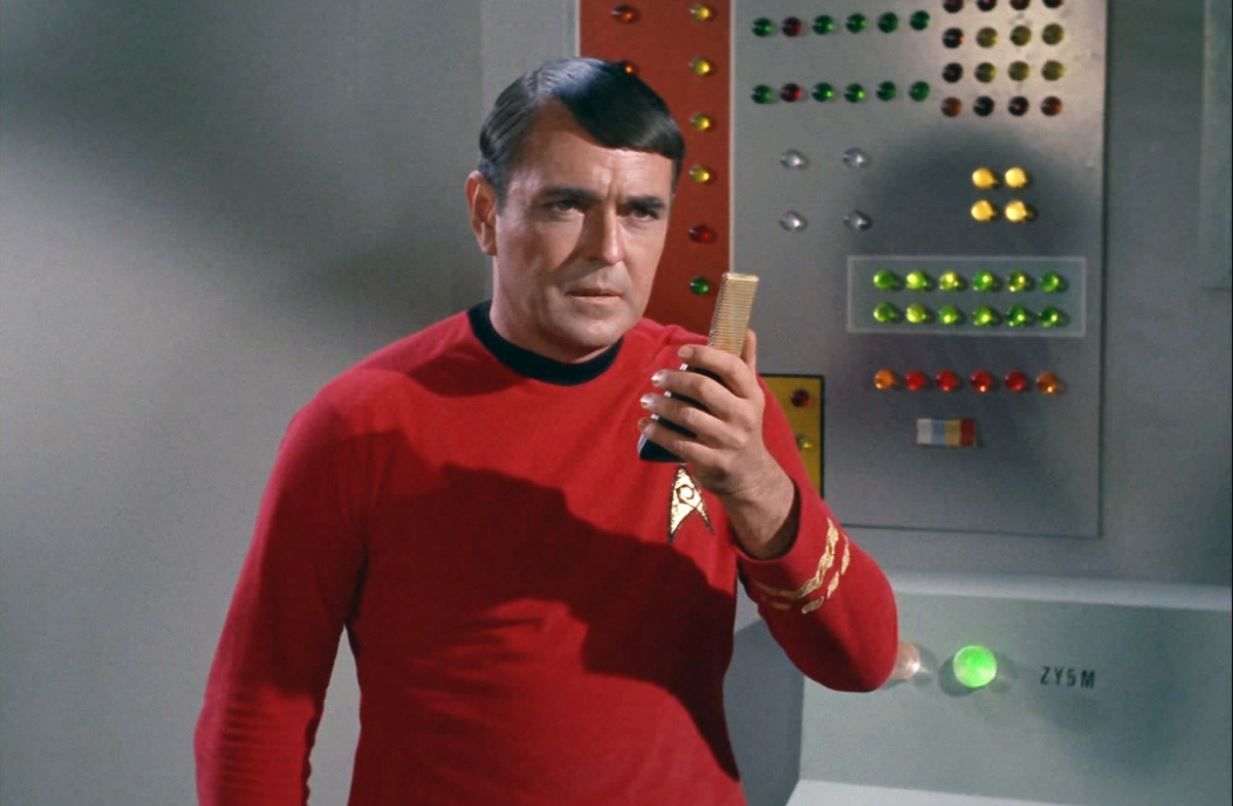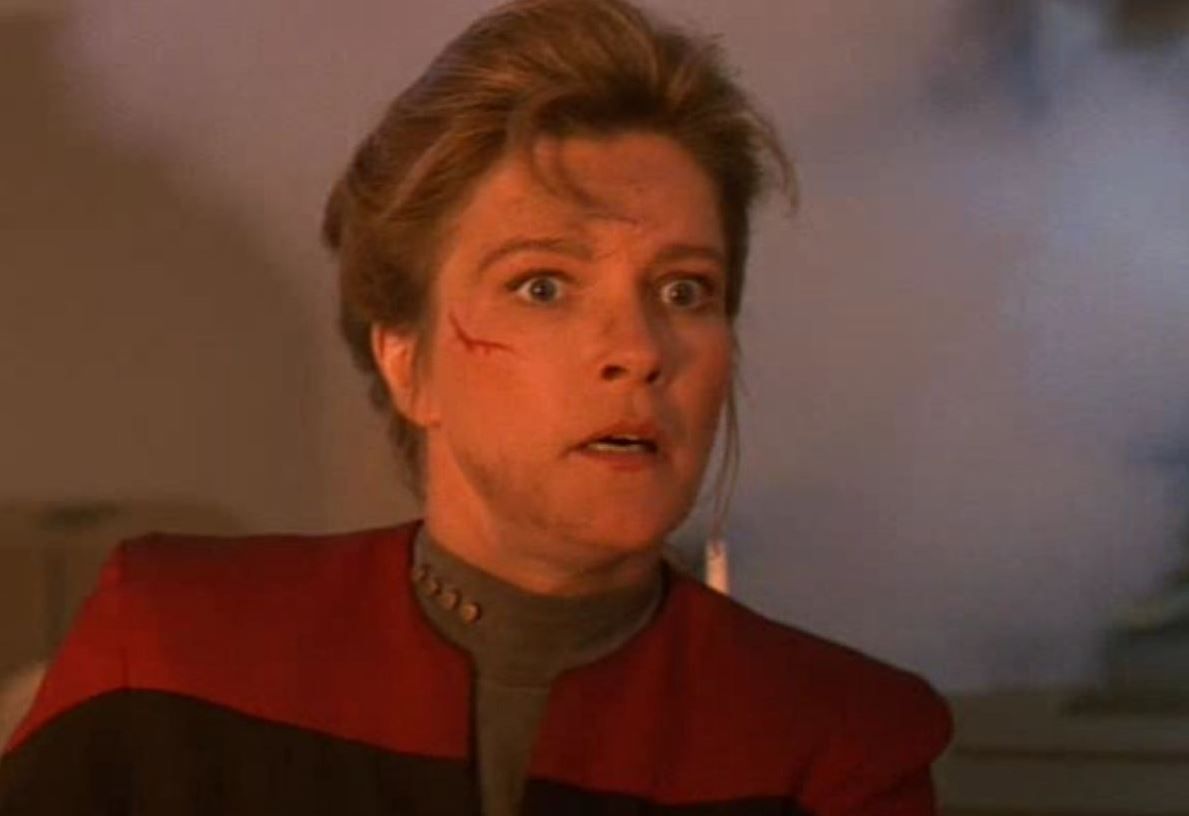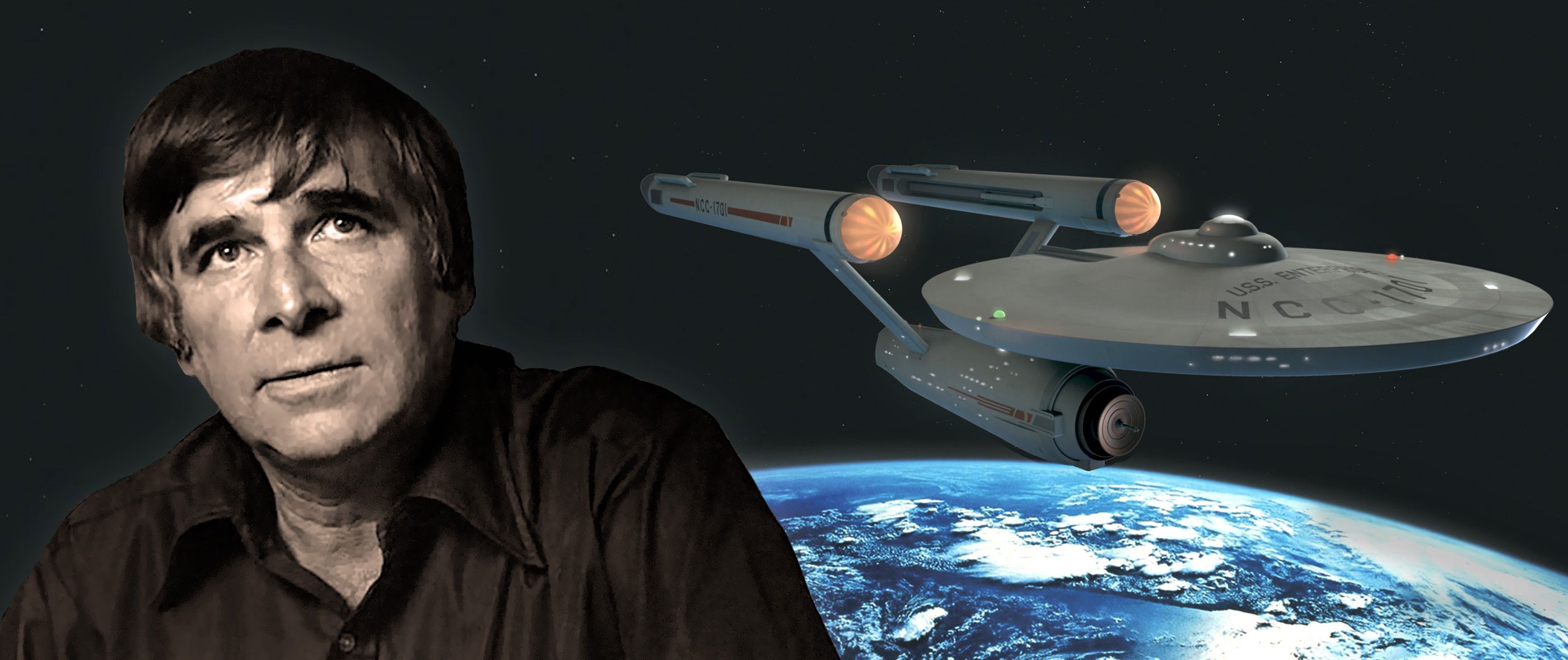Thanks to the major success of Star Trek: Discovery, the Star Trek franchise is hotter than ever. And thanks to the numerous tie-ins and callbacks to other Star Trek series, both casual and hardcore fans alike have been watching Trek reruns left and right. For many people, this has led to some uncomfortable realizations that what they thought they knew about Star Trek was false.
It's easy to see how this happens. Some of it is because Star Trek is very nearly mythical in our culture, and so ideas about things that were said and done come more from oral legends than actual memory. And many of us first watched these episodes as children, seeing Trek through the somewhat distorted vision of childhood. And, of course, some of what we remember is wrong because our minds are trying to make sense of some truly insane onscreen ideas.
How, then, can we figure out what is true and what is false? Fortunately, you don't have to find a working tricorder or fry your brain with a Klingon Mind-Sifter to get to the bottom of this. Just check out our Starfleet-approved guide to 15 Things Everyone Gets Wrong About Star Trek!
Bullets Are Borg Kryptonite
One of the most striking scenes in Star Trek: First Contact occurs on the holodeck. After a rather halfhearted attempt to hide from some attacking Borg, Picard picks up a replicated Tommy Gun and viciously guns down the Borg. Because of this, many people think that bullets are Borg Kryptonite, and ask why the crew didn't just replicate some more old-school weapons.
However, it's not that simple. The whole deal with the Borg is their ability to adapt. Phaser fire, for instance, usually manages to kill a Borg drone or two before they adapt to the latest frequency. This means that if Starfleet had continued to try to shoot them with kinetic weapons such as bullets, the Borg forcefield would eventually adapt to that as well.
Plus, Picard already dominates the meme world, and the internet can only handle so many scenes of him screaming while packing some serious heat.
Kirk was a huge ladies' man
There is much about Star Trek: The Original Series that became legend within our culture. It got to the point that even people who had never seen an episode of Star Trek were convinced of certain “facts,” such as Kirk being a huge ladies' man. And this quality was even played up to the extreme in the Star Trek 2009 reboot movie. However, it's not actually true!
For instance, William Shatner's Kirk only slept with about seven women that we know of. While it's debatable whether that is a high number or not, it's pretty low considering that it covers 79 episodes of television and seven movies that span just under three decades of in-universe time.
All things considered, supreme bachelor Captain Kirk was pretty mild in terms of romantic conquests, and he spent much more of his time focused on the mission than people remember.
The Federation never does anything wrong
So far, every Star Trek series and movie has been primarily told through the perspective of the Federation. Accordingly, our heroes are generally presented as highly moral and ethical beings. Because of this, many casual fans assume that Starfleet and the Federation effectively serve as the moral compass of the galaxy. Unfortunately, this is a complete lie.
Deep Space Nine introduced the idea of Section 31, a secretive organization that predates the formation of the Federation. They have official license to do whatever they feel is necessary to protect Federation interests, and we see them engage in political manipulation, murder, genocide, and attempts to spark interstellar war.
In Star Trek Into Darkness, Section 31 utilizes Khan as a weapon, too, making them partly responsible for all of the destruction he causes. The truth is, it doesn't matter how many pretty speeches people like Captain Picard give, as the Federation is kept afloat through some of the most immoral acts in the galaxy. Furthermore, the secretive nature of Section 31 brings up the troubling idea that any one of our beloved characters may secretly be a member.
Money no longer matters
Speaking of pretty Captain Picard speeches, he gives a hell of a speech in Star Trek: First Contact about money. Specifically, he emphasizes how money is obsolete, specifically saying that “money doesn't exist in the 24th century.” Because of this nice speech, many people think there's no money in the future, which is blatantly wrong.
Deep Space Nine shows us, for instance, that the Ferengi and other non-Federation citizens still use money. Furthermore, the Starfleet officers on Deep Space Nine are somehow able to pay Quark and other merchants for various goods— they've got to be getting the money from somewhere! These same officers gamble at the bar, and other Starfleet officers (including Picard himself) pay for souvenirs when they travel.
Apparently, money is alive and well in the future, and we can only conclude that Captain Picard was trying to make the future sound much better than it is... which is an understandable instinct when you're being chased by cybernetic zombies from the future.
Transporters are safe
The transporter is treated as just another bit of tech in the futuristic toolkit of Star Trek. It is such a regular part of their lives that characters like Dr. McCoy and others who dislike the transporters are treated as paranoid. Because of this, most viewers assume that the transporters are safe, but the truth is that they have been dangerous for years.
In Star Trek: The Motion Picture, we see the transporter outright kill two people during a routine transport, and their horrific cries really stay with you. The transporter also has a tendency to split people into two (just ask Kirk and Riker), and on one occasion, merge two people into one (just ask Neelix and Tuvok). When it interacts with some bad weather, the transporter may transport you to a bloodthirsty mirror universe, or it can make you phase out of synch with reality.
These are just a few of the transporter accidents... and, all told, it looks like Dr. McCoy was right about this thing being dangerous!
Picard is a good captain
It's the stuff of internet legend. Not a single hour of a single day goes by without people arguing online about whether Kirk or Picard was better. The root assumption here is that they are both good, and we simply must determine who is the best. However, the brutal truth that most people can't handle is that Captain Picard was a pretty bad captain.
First of all, he treats the Prime Directive as a joke, deliberately picking and choosing when to follow it (he's fine letting a small planetary population die of natural causes in “Homeward,” for instance, but puts the entire Edo planet and ship in jeopardy to save freaking Wesley Crusher). He takes some highly immoral steps, ranging from forcibly moving colonists a la the Trail of Tears to chiding people who want to leave their Nazi-esque eugenics planets.
In “Descent”, he literally sends almost every crew member to a foreign planet to hunt down Data, putting the majority of his crew in danger from rogue Borg. Oh, and he left Dr. Crusher and assorted rookies in charge of the ship.
Let's face it: inconsistent, immoral, and often insane does not make for a good captain!
Star Trek featured the first interracial kiss
Star Trek gets a lot of props for being progressive (more on that soon), which is one of the reasons that many people think that it featured the first interracial kiss on television. The episode involved Kirk and Uhura being forced to kiss each other, and while it did make some NBC executives at the time nervous, it was not actually the first interracial kiss on television.
There were actually a few claims to the first onscreen, interracial kiss before Trek did it. For instance, I Love Lucy featured Lucy kissing her husband Desi, a Hispanic man. And an episode of Movin' With Nancy showed Nancy Sinatra kissing Sammy Davis, Jr. And these are just US television moments—the UK showed an onscreen interracial kiss in 1959 in a TV adaptation of the play Hot Summer Night.
Thus, while Kirk and Uhura's kiss is iconic, it is not quite as historic as many think.
The Prime Directive is sacred
We are told time and again that the Prime Directive is sacred. Starfleet refers to it as “General Order Number One,” and Kirk gravely states that a Captain must be willing to give the life of himself and his entire crew before violating it. Casual viewers assume this is serious business, but we see the Directive being violated constantly!
In Star Trek Into Darkness, a primitive race sees Kirk, who proceeds to mess with some of their sacred texts and then show them a spaceship, drastically changing their culture. In a similar move, Star Trek: Nemesis shows us Picard and crew riding in an armed dune buggy in a pre-warp, Mad Max style world. They introduce these people to aliens, phasers, and spaceships. We even see Sisko become party to a political murder, just so the Romulans will team up with Starfleet against the Dominion.
Needless to say, none of these characters are ever punished for these violations. In fact, when Next Generation was halfway over, Picard had already violated the Prime Directive nine times, with seemingly zero repercussions.
Time Travel is rare
Because of Star Trek IV: The Voyage Home, even the most casual fan knows that Star Trek is no stranger to time travel. However, the characters treat it as very serious business, and it gives the impression that time travel, even in Star Trek, is pretty rare. However, by the time of Deep Space Nine, time travel is apparently a regular part of life in Starfleet.
Perhaps our best example of this comes from the Deep Space Nine episode “Trials and Trbble-ations.” After an unexpected jaunt to the past, Captain Sisko is visited by two members of the Department of Temporal Investigations. These two people, Dulmer and Lucsly (amusing anagrams of Mulder and Scully) apparently represent an entire Starfleet branch dedicated to the study and investigation of Starfleet officers traveling in time.
While the episode itself is very lighthearted, it makes it clear that Starfleet must be in danger of changing the past, present, and future on a regular basis. More disturbingly, we'll never know how many times reality has been changed on our favorite shows (though this may explain the odd plot hole here and there).
The Ferengi were always incompetent
While the Ferengi made a handful of appearances on Star Trek: The Next Generation, they really came into their own on Star Trek: Deep Space Nine. That show gave us a main Ferengi character, Quark, and he represented Ferengi everywhere: a cowardly super-capitalist. Accordingly, most of the Ferengi we see onscreen are treated like joke characters, and many thought it was always intended to be this way. However, nothing is further from the truth.
Originally, no less than Gene Roddenberry himself wanted the Ferengi to be the new Klingons: a lethal, recurring adversary. In the pilot episode of Next Generation, there is an ominous line about how they had eaten some previous business partners, building them up to be intimidating foes. However, when we first see them, they are like caricatures: hissing, squinting, and using unwieldy energy whips.
After the episode, everyone agreed they would never be major villains, and when production started on Deep Space Nine, they were further refined into comic relief aliens instead of major threats. Interestingly, Deep Space Nine brought Armin Shimmerman in as Quark, and he had played a Ferengi in that first episode, bringing things full circle.
Picard is British
It didn't take long for Captain Picard's voice to be an iconic part of his character. He speaks with a very rich British accent, and it's consistently a delight to hear him command “make it so” or “tea, Earl Grey, hot.” Understandably, many casual fans think that the character is meant to be British. However, he is actually French!
That's right— Captain Picard comes from La Barre, France, and we get a brief glimpse of the old homestead when he goes to visit his brother and nephew in “Family.” He's pretty much capital “F” French, too, complete with a family vineyard - though his brother runs things while Picard does the Starfleet thing. So, why no French accent?
In an early episode of the show, “Code of Honor”, Data casually refers to French as an “obscure language,” and Picard huffily points out that French was the language of civilization on the planet for centuries. What happened to make the language obscure, though? Your guess is as good as ours!
Star Trek was always progressive
One of the top adjectives for Star Trek has always been “progressive.” The reasons for this date back to the show's 1960s origins, in which they boldly presented a cast that was very diverse in terms of race, gender, national origin, and so on. However, if you scratch the surface, Star Trek is not nearly as progressive as most people think.
For instance, while the Original Series had a diverse cast, most of the plot and actions revolved around Kirk, Spock, and (to a lesser extent) McCoy, while the rest of the diverse cast played supporting roles. Next Generation had two prominent black actors (Michael Dorn and LeVar Burton), but they hid them beneath makeup and props. And, notably, each of their prominent roles on the show were first occupied by white actors.
Other series gave us diversity progress (such as first black captain on DS9 and first female captain on Voyager), but it wasn't until Star Trek: Discovery that we had black female leads and regular gay characters... and this is after fifty years! In terms of being progressive, Trek is often going at impulse speed instead of warp.
Kirk said “Beam Me Up, Scotty”
Through decades of reruns and reinventions, Star Trek became a part of our collective culture. As a result, even people who have never seen an episode can rattle off assorted quotes and memes based on the series. One of the most popular (adorning countless bumper stickers and t-shirts and posters over the years) is “Beam me up, Scotty.” Here's the thing, though: Kirk never said that in the series.
Of course, he said many variations of this kind of thing, including phrases such as “Scotty, beam us up” and in the movies, “Scotty, beam me up.” And in the animated series of Trek, he comes truly close, saying, “beam us up, Scotty.” However, the specific and iconic “beam me up, Scotty” is never actually said by Captain Kirk in any show or movie.
In this sense, this iconic part of Star Trek joins other classic lines that are actually remembered incorrectly by fans (kind of like Darth Vader never saying “Luke, I am your father”).
Janeway was a bad captain
Many people think Captain Janeway was bad for a simple reason: Star Trek: Voyager itself was a show of mixed quality, and she was the face of the show. Others point to the show's finale, pointing out that if Janeway was willing to violate the Prime Directive in this way (in this case, by traveling back in time and changing parts of the past), then the ship would never have been lost in the Delta Quadrant for so long.
Overall, though, Janeway was a pretty great captain.
First, she gets huge props for getting her crew (who were half Starfleet, and half Maquis terrorists that Starfleet used to hunt down) to work together. She lost very few crew members despite having access to limited resources and being surrounded by enemies. Janeway was able to handle Q like Picard never could, even bringing peace to the continuum. She also survived multiple Borg encounters with little to no help, and even helped MacGyver new technology onto her ship so they could fight back against these and other enemies.
Haters gonna hate, but Janeway did more than Kirk and Picard, and she did it in less time and with almost no help or resources.
Gene Roddenberry was a narrative genius
While fans of each may hate this comparison, Gene Roddenberry is a lot like George Lucas. Both creators deserve full credit for coming up with brilliant ideas that would span decades of storytelling and enthral millions of fans. However, as with Lucas, many people credit Gene Roddenberry with being a great storyteller, and the blunt truth is that he was not.
For instance, much of the original Trek creative team credits another man, producer and writer Gene Coon, with turning Trek into what it became famous for. He made the Klingons, he made Khan, and most importantly, he made Trek character-centric. Roddenberry, meanwhile, famously clashed with the famous writers he brought in (just ask Harlan Ellison), and changed their scripts at the last minute... usually for the worse.
As late as The Next Generation, Roddenberry had a rule where the characters could have no conflict with each other, which made stories difficult to tell. Ever notice how the episodes of Next Generation got a lot better from the third season onward? This is because Michael Piller took over as the head writer, and Roddenberry's influenced was waning.
---
Got any Star Trek myths we overlooked that you'd like to bust? Be sure to sound off in our comments!

